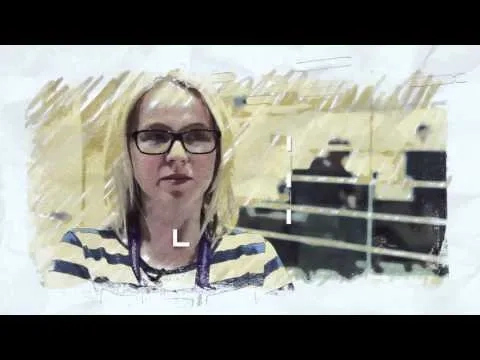Meet Sanidhya, an MSc Computing (Artificial Intelligence) Student
Practicum & Industry-Focused Learning at DCU

Sanidhya
When I started my MSc in Computing (Artificial Intelligence) at Dublin City University, I expected to learn new technical skills, but what I didn't expect was how practical, and industry-focused the entire experience would be. From engaging coursework to the unique practicum project, it has been as much about learning to solve real problems as it has been about learning theory.
A Programme Built for Balance
My course was structured with a good mix of core and AI-specific modules. We studied everything from data analytics, mining, and visualization to more AI-oriented modules like Foundations of AI and Machine Learning. Aside from this I had the option to choose an elective, I went with Mechanics of Search, which added an interesting layer of understanding about how search engine’s function.
Assessment methods varied and were professor dependent. Some professors preferred practical project-based work, where we were asked to develop a project, write a report, and finally give a presentation. Others preferred lab quizzes. Regardless of the method, each module offered a balanced focus on both theory and practical application.
What’s a Practicum Anyway?
Around the third or fourth week of the first semester, we were introduced to Practicum, a term that was new to me. Think of it as a hands-on, research-meets-industry capstone project, usually done in pairs. The goal is to pick a real-world issue, apply your skills, and either propose a novel solution or offer fresh insight into it. Unlike a traditional thesis, which is more academically rigorous and independent, the practicum is designed with industry relevance, skill development, and career-readiness in mind.
The Practicum Timeline & Support
Right from the time we were introduced to the practicum, the structure made things manageable. The process was divided into five clear phases with deadlines across the academic year. Early on, our targets were making a proposal, proposal defence, and a literature review. The later months we shifted towards development, testing, writing the dissertation and finally defending it against the panel.
There was plenty of freedom in selecting our topic, provided it allowed us to demonstrate course-learned skills. Our supervisor was extremely supportive from helping to refine vague ideas into a proposal to recommending resources and guiding our research direction. It felt like we had a strong safety net, without being spoon-fed.
Our Practicum: Taxi Route Optimization Using Swarm AI
My teammate and I initially considered comparing swarm intelligence in game performance, but our supervisor told us to aim for a more impactful, real-world problem. That’s when we came across the idea of taxi route optimization. We explored how swarm AI could enhance dispatch systems during peak demand events, like concerts, where multiple passengers are going to similar destinations.
We discovered a large, real-world taxi dataset, which motivated us further. Our supervisor’s guidance and the recommended online resources really helped us with the project.
Learning Beyond the Code
Our research gave us insights into how traditional taxi services operate, human behaviour during shared rides, and the cost benefits for both users and service providers. From a development perspective, it was challenging, especially implementing swarm logic from scratch and handling large datasets on personal computers. But the process was rewarding and made us realize how much potential Swarm AI has in logistics and transportation.
Real-World Meets Classroom
One of the standout aspects of the course has been its strong industry orientation. DCU regularly hosts sessions with companies like Amazon, Accenture, and Deloitte, where professionals talk about careers, industry expectations, and standards. These sessions offer great perspective on where the tech world is heading.
Our assignments also mirrored real-world scenarios. For example, in the Data Management and Visualization module, we had to create interactive dashboards using Power BI or Tableau, working with almost equivalent industry-grade datasets. It wasn’t just about submitting something functional, but rather we had to think like analysts, storytellers, and decision-makers.
Growing as a Professional
All these experiences from team projects to industry-style assignments have helped me grow beyond the technical skills. My communication abilities improved significantly while working with classmates from different backgrounds. This also exposed me to new programming languages like R and tools like Power BI and collaborative problem-solving approaches.
These interactions didn’t just prepare me to be a better developer but also helped me become a more adaptable professional.
Looking Ahead
What I’ve learned at DCU will stay with me far beyond graduation. The practicum taught me to think analytically and proactively and to not just solve the problem I’m handed, but to look for better, smarter ways to tackle it. It’s this mindset, along with my technical skill set, that I believe will give me an edge in the tech industry.
If you’re considering postgraduate study at DCU, especially in computing or AI, know this — it’s not just about learning what’s already been done. It’s about learning how to do things, how to think differently, and how to make your learning matter in the real world.
Pupil profile:
Dublin City University
Our top picks
Related roles
Trending in Technology
You might be interested in...


_1.webp)

.webp)
.webp)
.webp)
-min.webp)
-min.webp)

.webp)








.webp)



.webp)
.webp)
